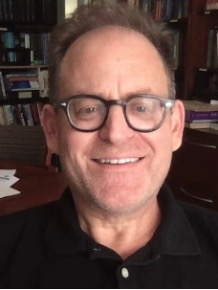Graduate Student Seminar
March 15, 2024
10:00 a.m. ET
Doherty Hall 2210
March 15, 2024
10:00 a.m. ET
Doherty Hall 2210
Imagine that a PhD student at Harvard forges the spectra others and submits this work for publication in his own name. Imagine that this happens before the internet; Harvard executes a coverup and sends the forger to Vanderbilt University as a professor. Imagine that the forger reemerges decades later as the husband of an heiress of a giant real estate fortune and promises to give a new department he aspires to join $40 million dollars from her checking account. (He gets the job.) Imagine that the “beneforger” then announces in the Seattle Post Intelligencer (7 April 2000) that he invented something that is going to “dominate the 21st Century” and “transform the economy of the Pacific Northwest”, by making the internet faster. He raises $100 million to pursue his idea, $40 million from the NSF, and the remainder mostly from the department of defense that wants to supercharge soldiers in Iraq and Afghanistan with information technologies. Imagine that the promised transformation is based on making electro-optic switches that can convert electric signals into optical signals by aligning dye molecules with electric fields. Imagine that this scam collides with a clueless expert in crystal optics who reports to the NSF that, hey, no molecules are aligned, in other words the so-called 19th C property of linear dichroism or absorption anisotropy is immeasurable. Imagine that the Ph.D. mentor of the beneforger at Harvard, improbably a provost at the University of Washington, says to a reporter in Nature, “This issue [of how the materials work] was like a mosquito buzzing around and it was like don’t bite me right now when we’ve got bigger fish to fry.” They were frying money. Imagine a Vanderbilt PhD student of the beneforger, improbably now a professor at the University of Washington, saying to the same Nature reporter, “Bart was right, but so what.” Imagine that the fun is just getting started. Imagine that by attending this seminar you will not only hear a crazy story – that you will hear – but rather that you will be confronted with an ethics of measurements, a discussion why it is our sacred duty to confront data that we don’t like with open and honest hearts, why this is essential for progress in our contemporary understanding of science and justice, why we must embrace uncomfortable knowledge whether a trivial measurement of a coworker, or the average value of the temperature on Earth.
Sources:
Massive Faculty Donations and Institutional Conflicts of Interest
J. Science Practice and Integrity, 2019
 Bart Kahr was born in New York City in 1961. He studied chemistry with I. D. Reingold at Middlebury College, with Kurt Mislow at Princeton University (Ph.D. 1988), and with J. M. McBride at Yale University. He was a faculty member at Purdue University from 1990 to 1996 and at the University of Washington, Seattle from 1997 to 2009. After which, he returned to his hometown where he is currently Professor of Chemistry in the Molecular Design Institute at New York University. His research group studies the growth, structure, and optical properties of complex, organized media.
Bart Kahr was born in New York City in 1961. He studied chemistry with I. D. Reingold at Middlebury College, with Kurt Mislow at Princeton University (Ph.D. 1988), and with J. M. McBride at Yale University. He was a faculty member at Purdue University from 1990 to 1996 and at the University of Washington, Seattle from 1997 to 2009. After which, he returned to his hometown where he is currently Professor of Chemistry in the Molecular Design Institute at New York University. His research group studies the growth, structure, and optical properties of complex, organized media.
November 4 2025
7:00 AM ET
US locations
November 4 2025
9:00 AM ET
Materials Science and Engineering
M.S. Program Information Session
Join us online to learn more about becoming part of the graduate student community through our master's degree programs.
Virtual
November 5 2025
4:00 PM ET
Materials Science and Engineering
"What Materials Research Looks Like At Apple,” presented by Carolyn Duran
Doherty A303
November 7 2025
12:45 PM ET
Materials Science and Engineering
Adventures in additive manufacturing for space exploration, presented by Daniel Oropeza, University of California Santa Barbara
7500 Wean Hall
November 11 2025
11:00 AM ET
Materials Science and Engineering
"Behind the Scenes with an ACS Editor: Insights into Scholarly Publishing and Manuscript Preparation,” presented by Dr. Raymond Schaak
5201 Scott Hall
November 13 2025
4:30 PM - 6:30 PM ET
Roberts Engineering Hall, Singleton Room, 4th floor